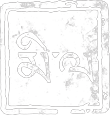… our own duty is to help
One of the major difficulties I’ve faced in my acceptance of Buddhist philosophy is the idea of karma, that everything we do and everything that befalls us is part of a continuous stream of consequences for our actions. I understood the idea to mean that if I were to act with evil intent, the consequences of my actions would eventually overtake me. Not a bad idea, you might say. But when we look at disasters, such as last winter’s tsunami, or at the victims of genocide, how can we believe that people really deserve the fate that’s befalling them?
I’ve recently been reading Essential Tibetan Buddhism by Robert Thurman (yes, Uma Thurman’s dad); in the introductory history of Tibet, Thurman discusses one theory of Mao Tse Tung’s invasion of Tibet: Chairman Mao, in reality an enlightened bodhisattva, took upon himself the terrible karma of destroying Tibet, massacring its people and ruining its temples so that no other person on earth could take on that burden. I blinked as I read that.
First of all, to believe that Mao was a bodhisattva would be a terrific stretch for any modern person, much less for those who had experienced the iron fist of his rule. More troubling, however, it painted Mao’s actions in a noble light, seeming to excuse the Chinese for Tibetan genocide. Could Thurman really be saying that some of the Tibetans believed they were on the receiving end of their own bad karma?
As with a koan, I mulled over the problem for a while. Finally, the answer came to me…
The difficulty lies in our interpretation of karma as deserves it, or worse, our interpretation of deserves it as don’t interfere. In fact, the answer requires a level of compassion far beyond what I’d originally grasped.
As an example, let us turn our attention to the ruler of a certain Western country whose armies have invaded two sovereign nations and threaten to invade more. This ruler, acting upon anger and fear in a post-9/11 world, initiated a series of wars to eradicate terrorism through violent means. (We needn’t discuss the pointlessness of such an exercise here)
Let us assume that this ruler is indeed an enlightened bodhisattva who undertook these horrible and foolish actions so that others would not incur such bad karma. Let us suppose that he takes the karma of the untold tens of thousands of civilians who died under his occupation, the thousands of his own soldiers who gave their lives for his vision, and all the other assorted destructive results of war. According to the Buddhist mythology, such a person would be reborn in the lowest of Hells so that others could ascend more rapidly to their own enlightenment.
What compassion!
And how can we stand against such compassionate actions? For we see that this ruler acts nobly, and those who suffer as a result of his rule suffer because of their karma. Who are we to interfere?
And that’s where I found the answer. Regardless of whether another being’s suffering is deserved or undeserved, when our attention happens upon their suffering, our own duty is to help. George Bush Jr. may be performing an ultimately noble act by taking on the karma (and eventual self-suffering) he earns by causing the suffering of so many others, but our duty is to help eliminate suffering for all. Our duty is to do what we can to fight back against suffering and the causes of suffering, whatever they may be.
Thus, it is not action that is wrong when karma wreaks havoc; it is inaction that incurs your own bad karma. Great suffering on Bush’s part in turn begets even greater suffering in others (thus power magnifies the effects of karma); it is not our place to hate either Bush or his enemies, but rather to seek ways in which we can help both free themselves from the bonds of suffering and illusion.
